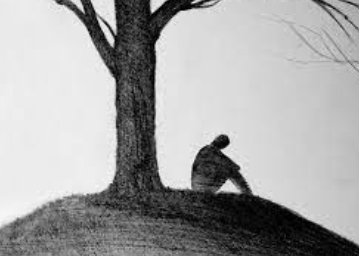THE IMPACTS OF THE PANDEMIC CAN FEEL LIKE GRIEF...
Wherever you are in the world, this pandemic has probably impacted your life in one way or another. Socially, culturally, and individually, the pandemic has changed an aspect of your life. Maybe your role in the family has changed.

Wherever you are in the world, this pandemic has probably impacted your life in one way or another. Socially, culturally, and individually, the pandemic has changed an aspect of your life. Maybe your role in the family has changed. Social interactions with others seem difficult and less natural than before. All of the sudden social anxiety has become a thing for you. Alternatively, your motivation levels feel depleted, and emotions seem all over the place. Possibly you question what “normal” looks like and how you are supposed to feel or react because of the pandemic.
What if we looked at the pandemic as a major life transition and now, we must grieve what we have lost.
It’s painful to recognize all the loss. When grieving, a person can go through various stages such as bargaining toward their loss, feeling strong emotions of anger, sadness or feeling down, choosing to isolate from others and in denial, or just being okay with the loss and circumstances. Some individuals do not experience all the grief stages while another person goes through all various emotions and stages. Experiencing grief is unique to the person. There is no specific timeline when a person comes to acceptance.
A loss could mean losing the opportunity to be in person at college or the ability to travel freely. A loss could mean losing the social support and connections we once had. A loss could be losing the employment that supported the family. A loss could be losing that lifestyle and identity we had before this big change. A loss could mean losing the health we once had or losing a person we loved. Loss is shown in many ways from the pandemic. Pain exists and having to be resilient through this time. However, globally and in your local area – the pandemic was impacting us all. You are not alone in the aftermath.
To grieve is a process unique to each individual. No person will follow a certain stage, experience every emotion, or stop grieving at the same moment. Acceptance could mean things are neither good nor bad, but it is okay. And even then, the experience could bring pain once again even when we think we’ve gotten past it all.
Ways to process the grief:
Acknowledge the loss.
Lean on social support.
Talk it out with family, friends, co-workers, or within your community.
It’s okay to sit with a feeling and just feel it.
Find ways to be nutritionally, physically, and mentally healthy.
Be self-compassionate through this process.
Thoughts to ponder:
What is life supposed to look like now? Each person assigned a different meaning to their experience with the pandemic. It is okay to re-evaluate what life is now. Society as a whole is influenced and therefore, new norms and rules develop from us talking about it. How would you like life to be moving forward?
Grief is a normal process, and it can take time to heal. It will not necessarily be an event to get over but rather choosing to live and continue. Please contact a mental health professional if needed or desired. Sometimes we just need to talk it out when we feel ready.
Therapist/High-Performance Coach
Kim Ernst, MSW, LCSWA
